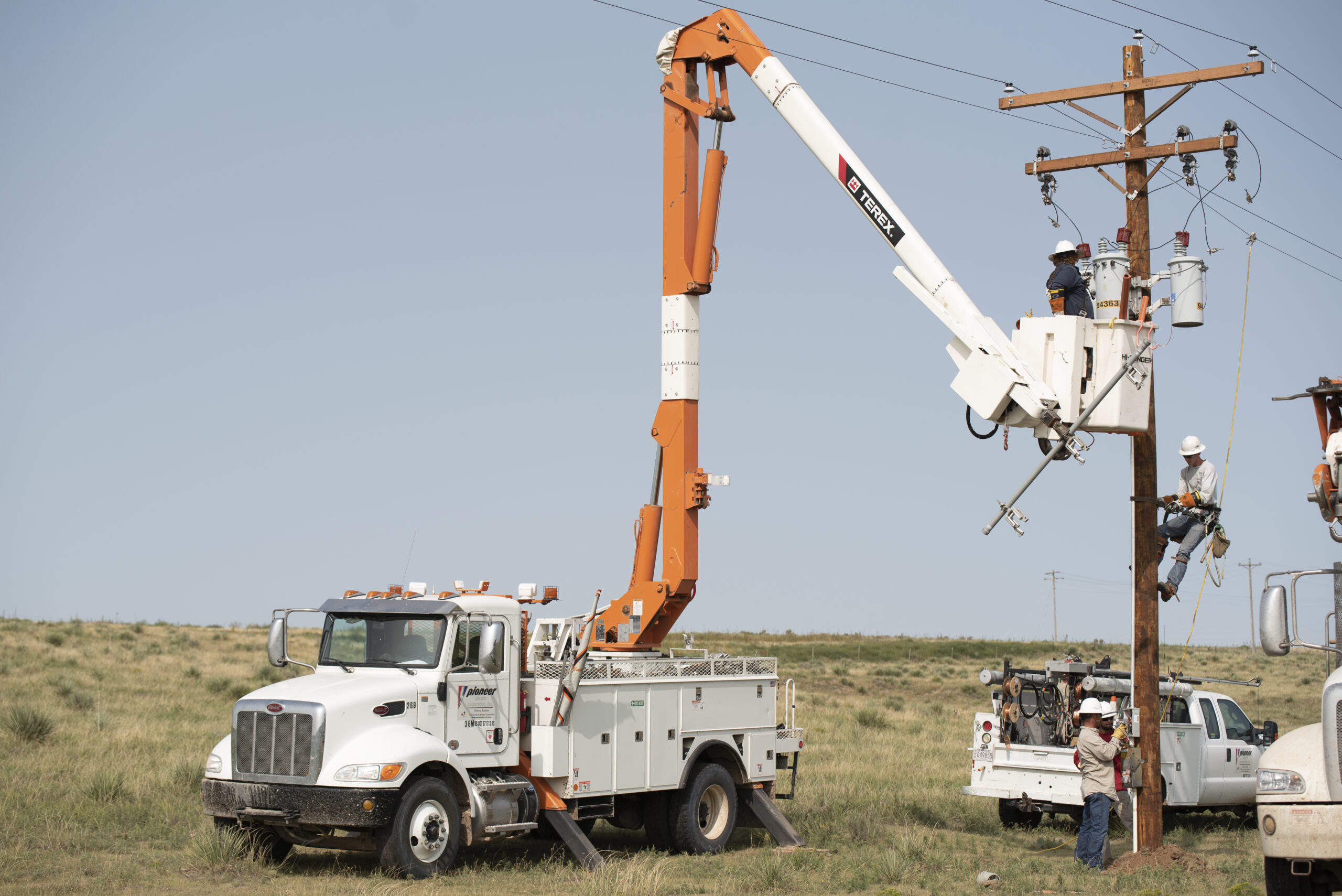
ULYSSES, KS – On Oct. 15, Pioneer Electric staff received notice of the approval of over $4.8 million in federal and state grants for various preventative maintenance projects for its system. Pioneer and ten other utilities and communities within Kansas were selected to receive more than $17 million in funds to help build grid resiliency within the state.
“This is a huge win for our members and serviced communities!” said Lindsay Campbell, Pioneer Electric CEO. “Safe, affordable, and reliable electrical service is paramount for southwest Kansas – we must be good stewards of our members’ cooperative and look for opportunities to help support our service goals.”
The grants will be used for various maintenance and updates to the cooperative’s distribution system as a part of its Grid Resiliency, Vulnerability, and Innovation Initiative. This includes pole testing and replacement, replacement and upgrades to aged power lines, and expanding its tools for inspecting power lines.
“It’s about taking proactive measures to ensure that we’re maintaining a strong and reliable system,” said Kristen Koehn, manager of Energy Solutions. These funds represent an opportunity to ensure Pioneer Electric stays resilient and dependable for our current members and future generations.”
Koehn also believes the funds allow for improvements to line and infrastructure inspection. Pioneer Electric plans to use portions of the funds to expand its drone program.
“We want to leverage new technology, such as drones, to help service crews better identify potential issues on the line. Areas of our service territory are very rural; having the ability to inspect a section of line that may be difficult to reach by road will be a great resource for our lineworkers. This will help speed up the inspection process and dedicate more time to repairs or restoration.”
The $17 million in state and federal funds for electrical grid resilience projects consist of approximately $12 million from the U.S. Department of Energy’s 4010 (d) Grid Resilience Grant Program and matching funds of over $5.8 million from the Kansas Infrastructure Hub and Build Kansas Fund.
